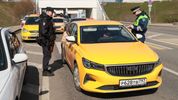Back in the day (my day that is) retail was not just about the transaction, sure that was the end goal but in order to win over a potential customer from a competitor we had invest not only product and price - but in the experience.
For the best part of the last 20 years most physical retailers seemed to lean further into the 'transactional' side of retailing and lost sight of the experience.
If you throw into that mix the draconian 'safety measures' imposed on retailers and consumers alike it's no wonder that the whole 'shopping' process has become quite sterile and dare I say it 'even more transactional'.
I read an article (link below) recently that looked at several 'experience' innovations to help consumers 'enjoy' the shopping experience as much as is possible given the Covid restrictions around access to a store and elsewhere.
The reality before Covid was that consumer behaviour had already shifted into the 'social media' space with circa 60% of the worlds population on one social platform or other.
According to GSMA real-time intelligence data, today, there are 5.20 Billion people that have a mobile device in the world. This means that 67.11% of the world's population has a mobile device.
When the crisis hit these 'social platforms' became part of the 'safety bubble' for keeping in touch with family, friends, and of course work colleagues. The rise in video conferencing platforms very quickly followed as more of us were told to 'work from home'.
As such, we are now accustomed to carrying our mobile with us for all the reasons above, but also when we leave the safety of our homes to go shopping perhaps?
One of the ideas that struck me as quite a good one was the use of QR Codes to serve as an entertainment and infotainment solution to those stood 6ft apart outside the store. If used in the right way they can even be used to maintain and ongoing 'front of mind' strategy between consumer and retailer.
Jonny Cota, the winner of Amazon’s Making the Cut in Los Angeles, has visitors scanning a QR code upon entering. It launches a friendly welcome video by Cota which tells shoppers about their brand and Covid rules.
He also lets customers shop a gallery-like space via a virtual tour or in real life, using their phones and QR codes as a guide to scan styles, see them on models, and add them to a digital cart that can be shipped or fulfilled in-store.
Now - just imagine doing this for any business access point, this can include 'travel retail', live events, including sport and music
All sounds great - but this requires retailers to alter the 'experience' mindset by thinking about adding social and media skills to the store employees.
Because it's not just a job for the guy with the beard, or the girl with the tattoo in marketing - assuming you can still afford them that is?
A renewed focus is needed on the store experience, one that gives shoppers a reason to put down their remote, get in their car, and venture out. And that goes whether you are considered among essential businesses or not. It will happen, but retailers need to move beyond being omnichannel and to being omnipresent in their customers’ lives – especially in their physical stores.
 unknownx500
unknownx500











